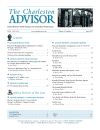
Slavery, Abolition, and Social Justice
Slavery, Abolition, and Social Justice is a database from the Adam Matthew Group. It is a source for a wide range of documents and images, most of which are primary sources, on slavery and its abolition. These range in age from the 16th to the 21st centuries. A large number are written
in English, but many are in other languages as well (such as French). These resources are drawn from a number of institutions around the Atlantic world, such as the British Library, The Duke University Libraries, the Georgia Archives, the Gloucestershire Archives, the Schomburg Center for
Research in Black Culture, and the Wilberforce Museum, among others.
This database’s search and browsing mechanisms are easily understood and grant the user a variety of ways to retrieve documents and images. The database’s various search options generally allow Boolean operators to be added to a query, but they are not required. The Advanced Search allows the user to search a number of fields in each document, including title, author, reference, key words, topics, and many others. This search can also be limited by date, region, document type, library, and in several other ways. Useful and on-point results are generally produced by the various search and browsing mechanisms, and lists of results are easy to understand and navigate. Individual documents are simple to view, download, export, etc. Unfortunately, only lists of results and essays are available to print, not other documents or images. Even when printing options are available, they can be difficult to find. This may be problematic for a variety of users. Pricing for this database is extremely variable, and dependent on factors such as FTE, relevant department size, Carnegie classification, and multiple title orders with the Adam Matthew Group. These variables could potentially make it very expensive for certain institutions. Potential subscribers should contact the Adam Matthew Group for specific pricing before giving serious thought to a subscription. The contract for this database is long and complex, and though many of its provisions appear to be fairly standard, it should be examined closely by potential customers and, if possible, their legal counsel. As with any contract, interested parties should review it carefully before making a commitment. This database is an excellent source for documents and images on slavery and its abolition, but it will only be of use to those who have a significant need for that kind of information, and then only for those which can afford the cost, which in some cases could be substantial.
It is also important to note that this database is only one of many that cover the subjects of slavery and abolition, either in part or in whole. Others include Slavery and Anti-Slavery: A Transnational Archive from Gale Digital Collections and Slavery and the Law from Proquest. Many others are produced by libraries or academic institutions and provide information free of charge. These include The Transatlantic Slave Trade Database from Emory University and In Motion: The African-American Experience from the Schomburg Center for Research in Black Culture (at the New York Public Library). Any one of these may (or may not) prove to be a more useful and/or cost-effective option for some institutions.
This database’s search and browsing mechanisms are easily understood and grant the user a variety of ways to retrieve documents and images. The database’s various search options generally allow Boolean operators to be added to a query, but they are not required. The Advanced Search allows the user to search a number of fields in each document, including title, author, reference, key words, topics, and many others. This search can also be limited by date, region, document type, library, and in several other ways. Useful and on-point results are generally produced by the various search and browsing mechanisms, and lists of results are easy to understand and navigate. Individual documents are simple to view, download, export, etc. Unfortunately, only lists of results and essays are available to print, not other documents or images. Even when printing options are available, they can be difficult to find. This may be problematic for a variety of users. Pricing for this database is extremely variable, and dependent on factors such as FTE, relevant department size, Carnegie classification, and multiple title orders with the Adam Matthew Group. These variables could potentially make it very expensive for certain institutions. Potential subscribers should contact the Adam Matthew Group for specific pricing before giving serious thought to a subscription. The contract for this database is long and complex, and though many of its provisions appear to be fairly standard, it should be examined closely by potential customers and, if possible, their legal counsel. As with any contract, interested parties should review it carefully before making a commitment. This database is an excellent source for documents and images on slavery and its abolition, but it will only be of use to those who have a significant need for that kind of information, and then only for those which can afford the cost, which in some cases could be substantial.
It is also important to note that this database is only one of many that cover the subjects of slavery and abolition, either in part or in whole. Others include Slavery and Anti-Slavery: A Transnational Archive from Gale Digital Collections and Slavery and the Law from Proquest. Many others are produced by libraries or academic institutions and provide information free of charge. These include The Transatlantic Slave Trade Database from Emory University and In Motion: The African-American Experience from the Schomburg Center for Research in Black Culture (at the New York Public Library). Any one of these may (or may not) prove to be a more useful and/or cost-effective option for some institutions.
Publication date: 01 October 2012
- Access Key
- Free content
- Partial Free content
- New content
- Open access content
- Partial Open access content
- Subscribed content
- Partial Subscribed content
- Free trial content
